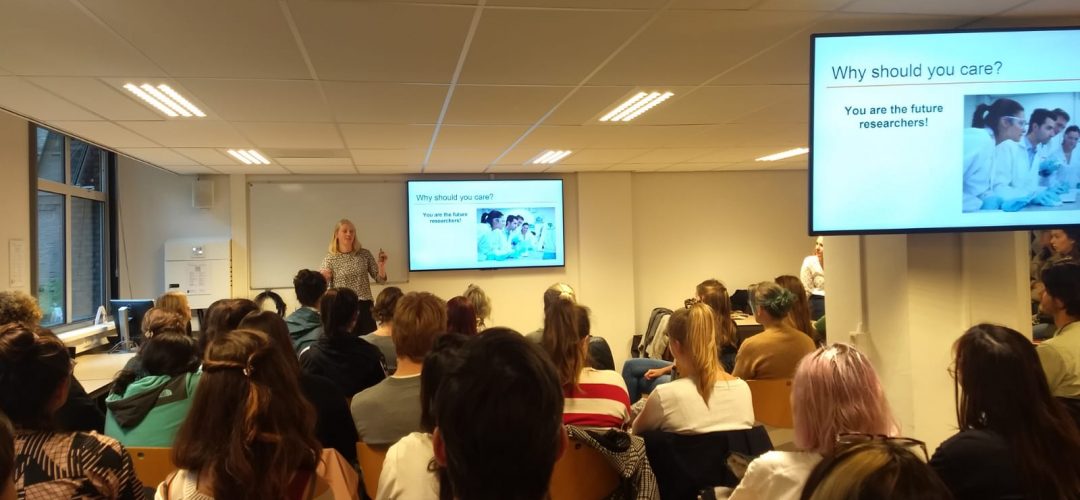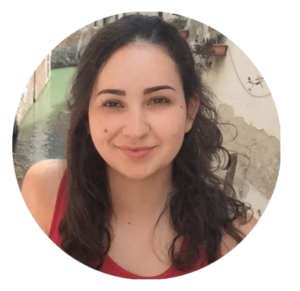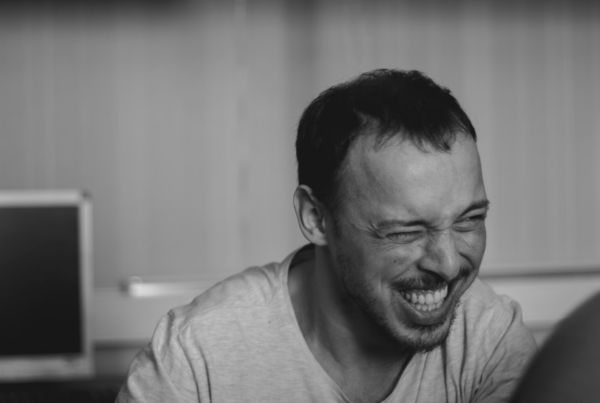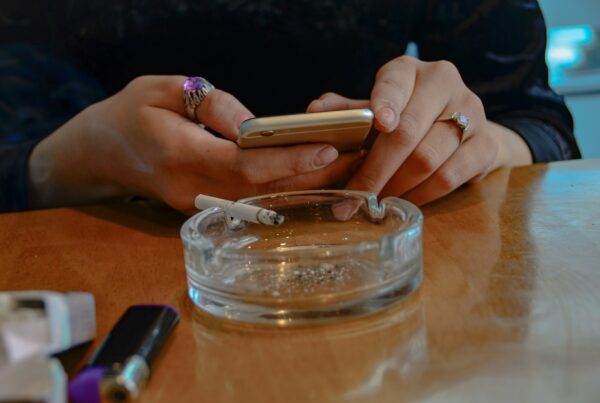
Open Science is just science done right. It is how we learn to conduct science during our studies. As scientists, we follow the scientific method to find truths about the world. We start with an observation, an idea, something we found interesting in previous research, and begin investigating the literature. We generate our hypotheses, design our study, decide what analyses we need to perform to answer our research questions, and make our predictions. After our study is finished, we report what we did and did not find. Sounds simple enough, right?
Open Science is just science done right. It is how we learn to conduct science during our studies. As scientists, we follow the scientific method to find truths about the world. We start with an observation, an idea, something we found interesting in previous research, and begin investigating the literature. We generate our hypotheses, design our study, decide what analyses we need to perform to answer our research questions, and make our predictions. After our study is finished, we report what we did and did not find. Sounds simple enough, right?

One of the SIOS lectures on Open Science (SIOS archive).

One of the SIOS lectures on Open Science (SIOS archive).
In practice, the research cycle has many pitfalls – some created by academic culture, some stemming from natural human bias. The replication crisis at the start of the 2010s exposed many problems in psychological science. Well-known effects that most psychology students learn about in the first years of their studies could not be found anymore, even when following the same procedure as described in the original studies (i.e. replication). One example of an unreplicable but renowned finding was that of Harvard Business School professor, Dr. Amy Cuddy’s: by adopting poses that reflect confidence, she claimed that humans can hack their autonomic nervous system and boost the production of hormones responsible for lowering stress levels while increasing confidence. So how was this possible?
One of the main reasons for this is publication bias – papers that report non-significant (null) findings are rarely published and thus end up in the ‘file drawer’. This deters researchers from writing up their ‘failed’ studies and incentivises the use of questionable research practices to increase the chances of publication(e.g. HARKing; hypothesising after the results are already known). Subsequently, others may base their works on a skewed, flawed, and in some cases even false, body of literature.
While this was a big shock to the scientific community, it also caused researchers to reconsider what science should look like. From this stems the Open Science movement. The foundational values and principles of science, openness, transparency, and integrity, are put at the forefront again. Biases in science are addressed head-on, and the scientific culture is picked apart to be able to improve. The overall goal of Open Science is to create better scientific practice and to create tools to aid in this. By now, it has become clear that the Open Science movement is here to stay and will be an integral part of psychological science. Researchers are learning how to implement Open Science and are spreading its values among their peers. However, the student community, an integral part, or even the foundation of science, is largely left out of the conversations about the future of science. There are some efforts in Open Science education, but the student perspective of why Open Science is important to us is largely neglected. This is why the Student Initiative for Open Science, or SIOS, as we like to call ourselves, was founded three years ago by four enthusiastic Psychology Research Master’s students.
“The foundational values and principles of science, openness, transparency, and integrity, are put at the forefront again.”
By educating students about the values of Open Science and the application of its practices at the early stages of their studies, we hope to get students more involved in the movement and get their voices heard. We want the threshold for students to participate in Open Science to be as low as possible since we strongly believe in its benefits. Not only would it help students in their academic and non-academic careers, but it would also benefit the Open Science movement by bringing the valuable student perspective. After all, who knows better what aspects of Open Science are most relevant to students and how to capture their interest than the student community itself?
In order to lower the threshold to get involved, we cater specifically to Bachelor and Master students. Via social media, we gather interesting and easy to understand sources for students, including scientific publications, podcasts, YouTube videos and blogs. We also organize events for students specifically. This means that we keep in mind topics that are useful during your studies, but that can also serve you in your career, even if you do not choose the academic route. For instance, we arranged a workshop on pre-registration (registering your research and analysis plans before conducting your study) in the period that most students started writing their thesis. This way students could bring their projects and directly apply what they learned. Furthermore, we have organized lectures on practical topics such as how to conduct a power analysis and on the basics of using JASP (JASP Team, 2021), an open-source free statistical program as an alternative to SPSS which students would probably not be able to afford after graduating. We also organize more interactive events to get students actively involved in a fun way – think movie nights with a discussion attached and panel discussions where students with different perspectives and opinions talk about Open Science.
The pandemic changed SIOS a lot. Social media became much more important – this meant being more active on Twitter, writing more blog posts and starting a SIOS Slack channel where students interested in Open Science can share articles, memes, and ask for help with their Open Science questions. Another main objective was expanding SIOS to other universities and even countries – thus started the creation of our Step-By-Step-Guide of starting your own SIOS (including a section on how to do this during the pandemic), which has led to the launch of SIOS Utrecht.
“We keep in mind topics that are useful during your studies, but that can also serve you in your career, even if you do not choose the academic route.”
Organizing events was a bit more tricky, as we feared that students would not want to attend online lectures. However, we quickly learned that doing online events brought opportunities and gave us a much wider reach – we could invite speakers who weren’t based in the Netherlands, and get other like-minded students from all over the world involved. We adapted our format to fit the online lectures and asked our audiences for feedback so we could improve.
We also got opportunities to advance our mission to emphasize the importance of the student perspective in the Open Science movement by attending and speaking at several online Open Science conferences and symposia. The response to our student-led and student-focused initiative was very positive. We received an Encouragement Award from the National Open Science Festival and an Open Scholarship Prize from OSC Galway. This has led to collaborations and stimulating conversations.
During the pandemic, we had to reassess and adapt what SIOS is and could be, and how we could grow. Now that we may be nearing the end of the pandemic, it is time for us to do this again. What do we take with us and what will we leave behind? For now, we plan on still doing online lectures and keep working on collaborating with researchers and students around the world. Our online presence will stay a focal point as this is part of how we make the student perspective to be heard. We will also start organizing offline (or hybrid) events to be able to more actively engage with students at the University of Amsterdam and hopefully make them as enthusiastic about Open Science as we are. If you are interested in joining SIOS, reading more about us, or attending our upcoming online lecture by Cameron Brick (22/02/22), check out our website, follow us on Twitter, and/or reach out via email!
References
– JASP Team (2021). JASP (Version 0.16) [Computer software].
In practice, the research cycle has many pitfalls – some created by academic culture, some stemming from natural human bias. The replication crisis at the start of the 2010s exposed many problems in psychological science. Well-known effects that most psychology students learn about in the first years of their studies could not be found anymore, even when following the same procedure as described in the original studies (i.e. replication). One example of an unreplicable but renowned finding was that of Harvard Business School professor, Dr. Amy Cuddy’s: by adopting poses that reflect confidence, she claimed that humans can hack their autonomic nervous system and boost the production of hormones responsible for lowering stress levels while increasing confidence. So how was this possible?
One of the main reasons for this is publication bias – papers that report non-significant (null) findings are rarely published and thus end up in the ‘file drawer’. This deters researchers from writing up their ‘failed’ studies and incentivises the use of questionable research practices to increase the chances of publication(e.g. HARKing; hypothesising after the results are already known). Subsequently, others may base their works on a skewed, flawed, and in some cases even false, body of literature.
While this was a big shock to the scientific community, it also caused researchers to reconsider what science should look like. From this stems the Open Science movement. The foundational values and principles of science, openness, transparency, and integrity, are put at the forefront again. Biases in science are addressed head-on, and the scientific culture is picked apart to be able to improve. The overall goal of Open Science is to create better scientific practice and to create tools to aid in this. By now, it has become clear that the Open Science movement is here to stay and will be an integral part of psychological science. Researchers are learning how to implement Open Science and are spreading its values among their peers. However, the student community, an integral part, or even the foundation of science, is largely left out of the conversations about the future of science. There are some efforts in Open Science education, but the student perspective of why Open Science is important to us is largely neglected. This is why the Student Initiative for Open Science, or SIOS, as we like to call ourselves, was founded three years ago by four enthusiastic Psychology Research Master’s students.
“The foundational values and principles of science, openness, transparency, and integrity, are put at the forefront again.”
By educating students about the values of Open Science and the application of its practices at the early stages of their studies, we hope to get students more involved in the movement and get their voices heard. We want the threshold for students to participate in Open Science to be as low as possible since we strongly believe in its benefits. Not only would it help students in their academic and non-academic careers, but it would also benefit the Open Science movement by bringing the valuable student perspective. After all, who knows better what aspects of Open Science are most relevant to students and how to capture their interest than the student community itself?
In order to lower the threshold to get involved, we cater specifically to Bachelor and Master students. Via social media, we gather interesting and easy to understand sources for students, including scientific publications, podcasts, YouTube videos and blogs. We also organize events for students specifically. This means that we keep in mind topics that are useful during your studies, but that can also serve you in your career, even if you do not choose the academic route. For instance, we arranged a workshop on pre-registration (registering your research and analysis plans before conducting your study) in the period that most students started writing their thesis. This way students could bring their projects and directly apply what they learned. Furthermore, we have organized lectures on practical topics such as how to conduct a power analysis and on the basics of using JASP (JASP Team, 2021), an open-source free statistical program as an alternative to SPSS which students would probably not be able to afford after graduating. We also organize more interactive events to get students actively involved in a fun way – think movie nights with a discussion attached and panel discussions where students with different perspectives and opinions talk about Open Science.
The pandemic changed SIOS a lot. Social media became much more important – this meant being more active on Twitter, writing more blog posts and starting a SIOS Slack channel where students interested in Open Science can share articles, memes, and ask for help with their Open Science questions. Another main objective was expanding SIOS to other universities and even countries – thus started the creation of our Step-By-Step-Guide of starting your own SIOS (including a section on how to do this during the pandemic), which has led to the launch of SIOS Utrecht.
“We keep in mind topics that are useful during your studies, but that can also serve you in your career, even if you do not choose the academic route.”
Organizing events was a bit more tricky, as we feared that students would not want to attend online lectures. However, we quickly learned that doing online events brought opportunities and gave us a much wider reach – we could invite speakers who weren’t based in the Netherlands, and get other like-minded students from all over the world involved. We adapted our format to fit the online lectures and asked our audiences for feedback so we could improve.
We also got opportunities to advance our mission to emphasize the importance of the student perspective in the Open Science movement by attending and speaking at several online Open Science conferences and symposia. The response to our student-led and student-focused initiative was very positive. We received an Encouragement Award from the National Open Science Festival and an Open Scholarship Prize from OSC Galway. This has led to collaborations and stimulating conversations.
During the pandemic, we had to reassess and adapt what SIOS is and could be, and how we could grow. Now that we may be nearing the end of the pandemic, it is time for us to do this again. What do we take with us and what will we leave behind? For now, we plan on still doing online lectures and keep working on collaborating with researchers and students around the world. Our online presence will stay a focal point as this is part of how we make the student perspective to be heard. We will also start organizing offline (or hybrid) events to be able to more actively engage with students at the University of Amsterdam and hopefully make them as enthusiastic about Open Science as we are. If you are interested in joining SIOS, reading more about us, or attending our upcoming online lecture by Cameron Brick (22/02/22), check out our website, follow us on Twitter, and/or reach out via email!




